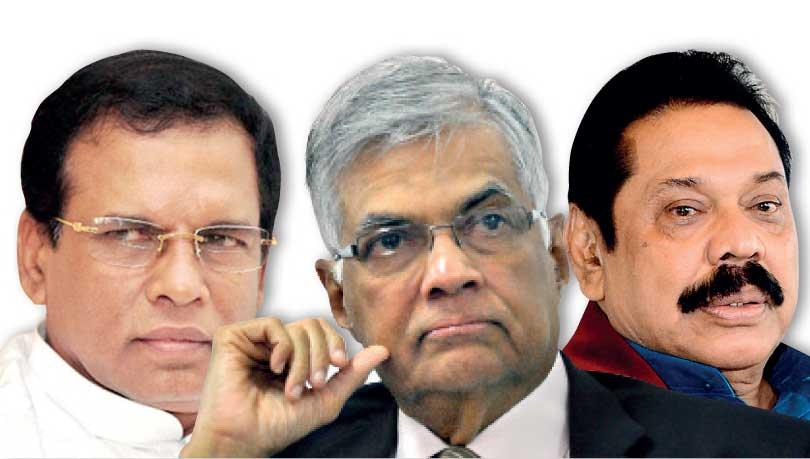Reply To:
Name - Reply Comment

 Elections to every single local government authority in the Galle District were held on February 10, 2018. Except Elpitiya. That was due to a petition pleading relief over a perceived error in a nomination list being rejected. Time passed. We had the parliamentary crisis at the end of that year. We had the Easter Sunday attacks a few months ago. Even people who were aware of that election or rather non-election forgot about Elpitiya.
Elections to every single local government authority in the Galle District were held on February 10, 2018. Except Elpitiya. That was due to a petition pleading relief over a perceived error in a nomination list being rejected. Time passed. We had the parliamentary crisis at the end of that year. We had the Easter Sunday attacks a few months ago. Even people who were aware of that election or rather non-election forgot about Elpitiya.
Not any longer. With the Court directing the Elections Commission to hold elections for the Elpitiya Pradeshiya Sabha immediately, we are seeing a rehearsal, a by-election of sorts and a referendum all rolled into one.
Here’s what happened. The yahapalana regime went into strange contortions to postpone local government elections. Well, provincial councils too, but that’s another story. By the time elections were called, the yahapalana coalition had cracked. Corruption, nepotism and incompetence had become too apparent to hide. The Sri Lanka Podujana Peramuna (SLPP) was the clear victor. President Maithripala Sirisena’s true strength was revealed. The Sri Lanka Freedom Party [SLFP] got less than 15% of the vote and the United National Party’s (UNP) vote bank had dwindled to around 30%.
The outlook for the yahapalana group is bleak. The SLFP or rather Maithripala Sirisena would be forced to take a stand, i.e. whether to enter into a coalition with the SLPP, tag itself to the UNP (or a faction of that party led by Sajith Premadasa, if the internal crisis is not resolved) or go it alone. Unenviable. The JVP was not officially a member of the yahapalana coalition, but stood with Sirisena and later the UNP against Mahinda Rajapaksa and later the SLFP-SLPP ‘arrangement’ during the parliamentary crisis a year ago. The JVP has decided to do their own thing this time around. The risk is that of their strength being revealed, but it’s a risk they’ve embraced, for better or for worse.
The UNP has spared no pains to paint President Sirisena as the villain of the piece called ‘Yahapalanaya.’ The UNP is still ‘government’. It is not the opposition. It had a mandate and a responsibility. The UNP failed to deliver on all counts. The UNP is directly implicated in nepotism and corruption. The UNP marked itself as ‘incompetent.’ Ranil Wickremesinghe is the leader of this UNP and Sajith Premadasa his lieutenant — no one can claim ‘I was a peon’ in the yahapalana regime.
All these parties fared abysmally in February 2018. The SLPP secured 50.57% of the total vote in the Galle District, the UNP got 26.65%, the UPFA got 11.65% and the JVP 6.27%.
 The numbers may have changed. For the worse. Impatience with the regime may have enhanced rather than declined disenchantment for reasons of incompetence, incoherence and of course the scandalous failures on the security/intelligence front that led to the Easter Sunday attacks. There’s a strong likelihood that most of the 75,827 votes the UPFA received would slide towards the SLPP if the SLFP decides not to contest or have a pact with the UPFA or even if the SLFP contests on its own, it is highly unlikely that it will retain the 11.65% share of February 2018. That could be halved or worse still with ‘defections’ to the SLPP.
The numbers may have changed. For the worse. Impatience with the regime may have enhanced rather than declined disenchantment for reasons of incompetence, incoherence and of course the scandalous failures on the security/intelligence front that led to the Easter Sunday attacks. There’s a strong likelihood that most of the 75,827 votes the UPFA received would slide towards the SLPP if the SLFP decides not to contest or have a pact with the UPFA or even if the SLFP contests on its own, it is highly unlikely that it will retain the 11.65% share of February 2018. That could be halved or worse still with ‘defections’ to the SLPP.
And so we have ‘Elpitiya’. Is Elpitiya a microcosm of Sri Lanka? No. The Tamil and Muslim communities are negligible in Elpitiya. They won’t be so in the Northern and Eastern Provinces and in certain other parts of the country. A UNP presidential candidate might be routed in Elpitiya (or in the Southern Province as a whole) but might win in the Northern and Eastern Provinces, though with a smaller margin than in 2015.
Elpitiya is rural. Whereas the SLPP handsomely won all the pradeshiya sabhas in the Galle District, the UNP secured the Galle Municipal Council. In fact the UNP did better in the urban and municipal council elections than in the pradeshiya sabha elections in all parts of the country.
This dissimilarity between the perceived urban and perceived rural gets smudged in important elections. For example, the tendency across the board was against the UNP in 1994 and clearly against Mahinda Rajapaksa in 2015. In 2019, we might once again see a ‘unity’ of sorts between the urban and rural in terms of a common need to show the yahapalanists the political door.
Regardless of these realities, the result will most certainly reflect voter sentiment. It will be read by the victor as a reflection of national sentiments, especially if the SLPP wins as expected. The losers would be forced to come up with elaborate statistical analyses to demonstrate that things could be different in a presidential race. Nevertheless, a rout in Elpitiya would severely demoralize, say, the UNP loyalist in Elpitiya-like electorates throughout the country and even in less Elpitiya-like places. The ‘urban’ areas, for example. It would cost the UNP candidate, whoever it may be. Elpitiya, in short, would not only be read as a ‘reflection’ of general sentiment, but would be a momentum giver and wrecker, to winner and loser(s) respectively.
The SLPP is ready, obviously. The JVP always has its ‘people’ on the ground. The loyalists will vote as they always do, never mind that they have struggled to win over people outside the party. The SLFP’s identity crisis (migrate to the SLPP, play bystander, contest?) will be resolved, one way or the other, but the outcome is unlikely to propel the party into believing that fielding its own candidate makes any sense. The UNP will have to contest.
The UNP will have to decide on who will lead the party’s efforts in Elpitiya. Will Sajith be asked to ‘put up or shut up’? Will the party have resolved the candidate-issue by then? It is not an election that the UNP wants to contest, but it is an election the party cannot avoid. If the UNP loses by a small margin there will be positives to carry to the presidential election. Ranil (or Sajith or both) could spur the loyalists to work harder. If they lose by a margin similar to that of February 2018 and the party can obtain the consolation argument, ‘we have not lost ground.’ However, if the margin of defeat is greater than those related to the other pradeshiya sabha elections in the Galle District, the UNP will have to stomach ‘done and dusted’.
Obviously, the SLPP cannot sit on February 2018 laurels either. If there’s gain, that locks up the presidential prize and if there’s the slightest decline, then it means the fat lady is yet to sing.
Either way, Elpitiya could very well be the place where the presidential election begins and ends. For all these parties.